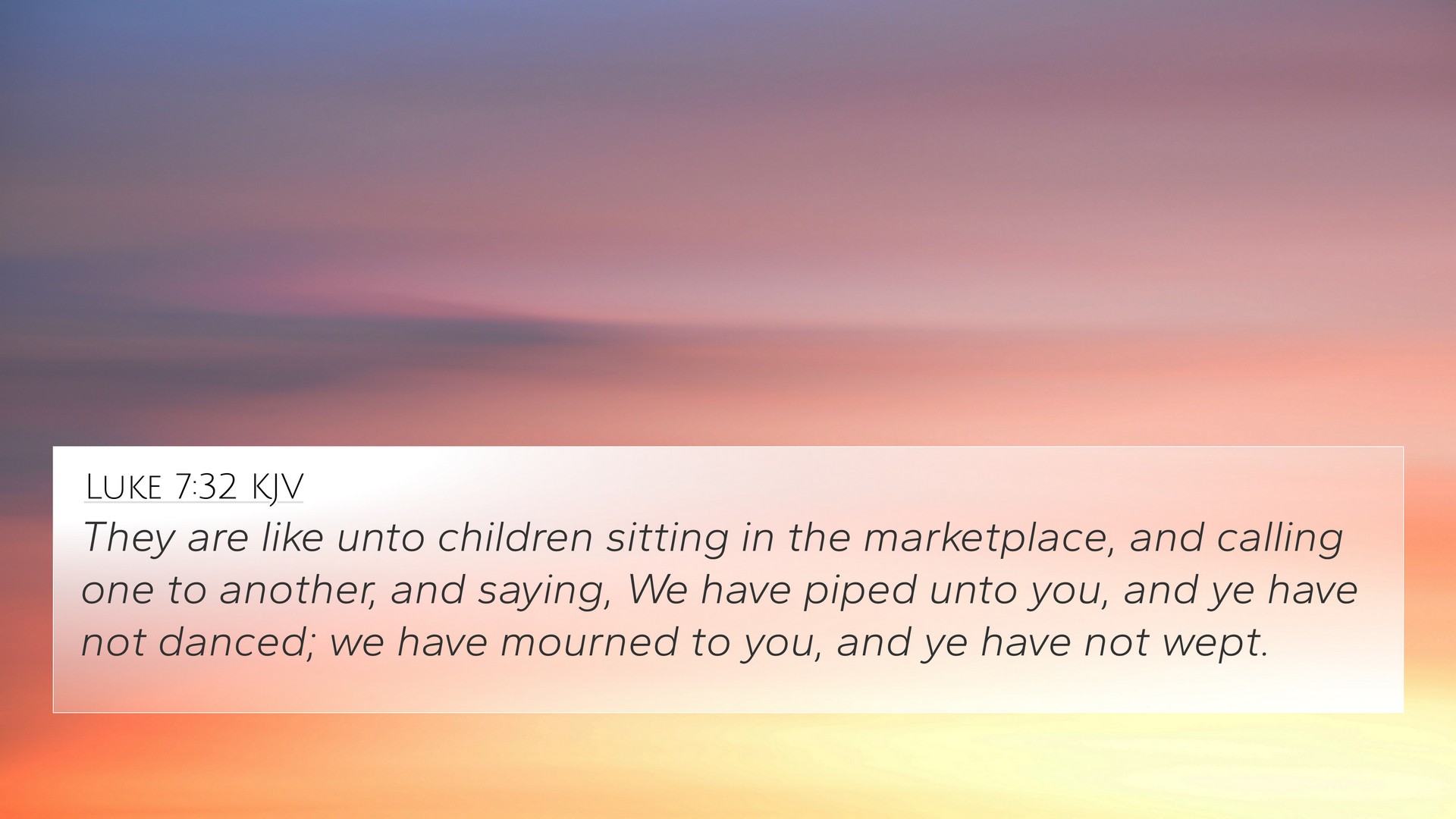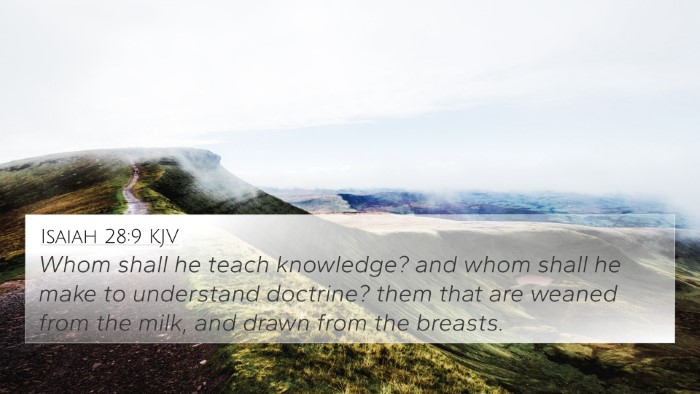Understanding Luke 7:32
Luke 7:32 states: "They are like children sitting in the marketplace and calling to one another: 'We played the flute for you, and you did not dance; we sang a dirge, and you did not weep.'" This verse provides a vivid illustration of a societal critique, portrayed through a metaphor of children responding to music in a marketplace.
This passage is rich in meaning and invites a comparative analysis with various biblical texts. Below is an exploration of its implications based on insights from notable public domain commentaries.
Context and Symbolism
Commentators emphasize that this verse reflects Jesus' critique of the religious leaders and the people of His time. Matthew Henry suggests that the children symbolize the different responses that people can have to God's call, emphasizing their obstinacy in not responding to the divine message.
Albert Barnes adds that this metaphor captures the essence of human nature and societal behavior, where people often dismiss the calls to joy and mourning, representing the rejection of both John the Baptist and Jesus. Adam Clarke elaborates further, explaining how the marketplace setting implies a place of interaction, commerce, and, metaphorically, spiritual negotiation.
Thematic Connections
Luke 7:32 has several thematic connections within the Bible, aiding in deeper understanding through cross-references:
- Matthew 11:16-19: Discusses the generation that rejected both the joyful and sorrowful messages—evoking the same sentiment as in our primary verse.
- Proverbs 1:24-25: Depicts God's call to the foolish who refuse wisdom, reflecting a similar theme of rejection.
- Jeremiah 7:13: Indicates a stubbornness in rejecting God's messages, aligning with the children's refusal to dance or weep.
- 1 Corinthians 1:18: The message of the cross is foolishness to those who are perishing; a parallel theme regarding the reception of divine truth.
- Hebrews 3:15: "Today, if you hear his voice, do not harden your hearts," reiterating the act of listening versus ignoring God's call.
- John 5:40: "Yet you refuse to come to me to have life," showcasing the refusal to embrace the offered invitation.
- Mark 6:3: Examining how familiarity breeds contempt, paralleling the skepticism Jesus faced in His own town.
- Lamentations 3:40: Calls for self-examination which resonates with the underlying challenge of introspection in the face of rejection.
- Acts 7:51: "You stiff-necked people," echoes the hard-heartedness towards the messages of God.
- Luke 19:41-44: Jesus weeping over Jerusalem, a powerful counterpart to the weeping or lack thereof indicated in this verse.
Inter-Biblical Dialogue
The inter-Biblical dialogue initiated by Luke 7:32 creates pathways for thematic Bible verse connections. The verse acts as a bridge, linking various scriptures reflecting the obstinacy of human hearts towards divine calls. These connections underscore a central biblical theme: the invitation to respond to God’s voice.
Tools for Bible Cross-Referencing
For those interested in further exploring these connections, there are numerous resources available:
- Bible Concordance: A valuable tool for finding related verses in the Bible.
- Bible Cross-Reference Guide: Helps in locating specific connections between verses.
- Cross-Reference Bible Study: A methodical approach to analyzing linked scriptures.
- Bible Reference Resources: Collections that detail various biblical relationships.
- Bible Chain References: A systematic way to follow themes throughout the scriptures.
- Comprehensive Bible Cross-Reference Materials: For in-depth study and exploration of biblical texts.
Conclusion
In summary, Luke 7:32 serves as a poignant reminder of humanity’s tendency to resist divine promptings, illustrating the need for introspective hearts willing to respond to God’s invitations. Exploring its connections with other biblical texts enhances our understanding of this verse, providing deeper insights through cross-referencing and comparative analysis. These scriptural interconnections enrich our study and help identify the recurring themes of rejection and acceptance throughout the Bible, showcasing the timeless relevance of God’s word.








